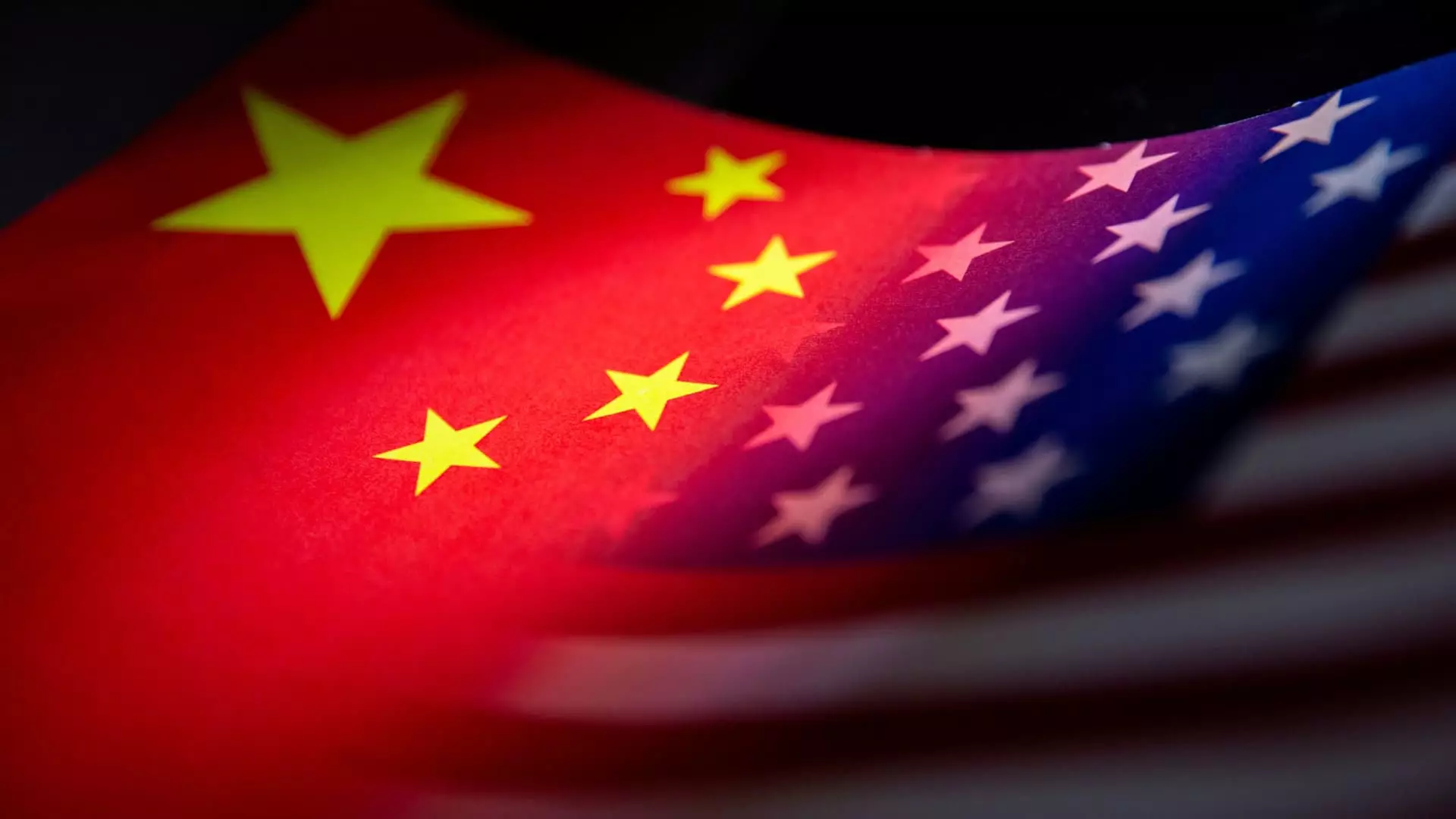The recent meeting between President Xi Jinping and international business leaders unearthed a range of critical perspectives on the future of global economic dynamics. In an era where the global trading system faces unprecedented challenges, Xi’s call for multinational corporations to “uphold global order” is not just a diplomatic appeal; it reads as a strategic maneuver to reinforce China’s influence amidst deteriorating relations with the United States. His insistence that collaboration is necessary for “stability in global supply chains” rings alarm bells, reflecting a desire not merely for partnership but for authority over a coalition of investors and enterprises that, until recently, may have preferred to distance themselves from political risk.
Xi’s idealization of China as a “safe and stable” environment for investment operates on a dual layer. On one hand, he propagates a vision of China as the bastion of future opportunity; on the other, there lies an undercurrent of coercion beneath a friendly facade. In a world rife with uncertainty fueled by trade wars and escalating tariffs—primarily driven by U.S. President Donald Trump’s aggressive policies—it becomes evident that China is not only acting in its self-interest but highlighting the necessity for global businesses to consider their allegiances carefully. The implicit message is clear: to ignore China is to risk isolation in a rapidly shifting economic landscape.
The Façade of Fair Opportunities
Xi’s commitment to ensuring “fair opportunities” for foreign enterprises to engage in government procurement is arguably disingenuous, especially given the growing scrutiny surrounding China’s regulatory environment. The assurance that fair bidding processes will be upheld presents an enticing image, yet this rhetoric often clashes with the lived experiences of companies navigating China’s labyrinthine bureaucracy. Over the years, many firms have wrestled with the limits imposed on foreign competitors, showing that Xi’s promises need to be weighed against China’s historical contexts of protectionism and favoritism towards local businesses.
As Xi spoke before a gathered assembly of international executives, it is worth questioning who benefits most from these declarations. Major figures in attendance, including finance titans like Ray Dalio and Bill Winters, highlight the weighty power imbalance at play. These are not just any executives; they represent firms that are lucky to operate in a space often dictated by political whims. There’s an unsettling sensation that their presence reinforces Xi’s narrative, thereby lending credibility to a system that requires scrutiny.
Trade Tensions: A Game of Negotiation
The tension between the U.S. and China remains palpable, fueled by tariffs that have wildly fluctuated since Trump took office. Xi’s assertion that U.S.-China trade disputes should primarily be resolved through negotiation raises an eyebrow. This perspective is drenched in pragmatism yet obscures the pressing reality of nationalistic policies that have emerged on both sides. Xi’s appeal for dialogue presents a dichotomy: while negotiations are critical, they often ignore the broader themes of accountability and reform needed on both sides.
Furthermore, reports suggest that the U.S. maintains a steadfast lead as China’s single largest trading partner. This fact complicates Xi’s narrative as he seeks to pivot towards Southeast Asia and the European Union for diversification. The fragility of global supply chains—and the dire consequences that could ensue from an outright separation from any major trading partner—highlights a fundamental truth of this geopolitical chess game: reliance on negotiation is a necessity, but it’s not always a leverage point.
Behind the Curtain of Diplomatic Engagement
Signaling a move towards soft diplomacy, the meeting held by Xi underscores China’s attempts to disarm criticism through engagement rather than confrontation. The very fact that Senator Steve Daines visited China marks a noteworthy but cautious step towards a diplomatic thaw. While this may seem constructive, one must be skeptical about the implications of such interactions. The conversation is often shaped by the desire for leaders to project strength rather than genuine willingness to meet mutual concerns.
Xi’s embrace of international business leaders reflects his understanding that economic prosperity is rooted not only in nationalistic fervor but in collaboration and interdependence. While he professes openness to trade, the question remains if the underlying motivations of these engagements serve anything beyond a temporary facade of cooperation.
This needs to be the moment where the world’s economy re-evaluates its relationship with authoritarian regimes, demanding transparency, accountability, and a respect for global norms that have historically underpinned cooperative commerce. As the tides turn and the political landscape evolves, a more nuanced understanding of trust and transparency becomes critically necessary—not only within China’s borders but across the entire global marketplace.

